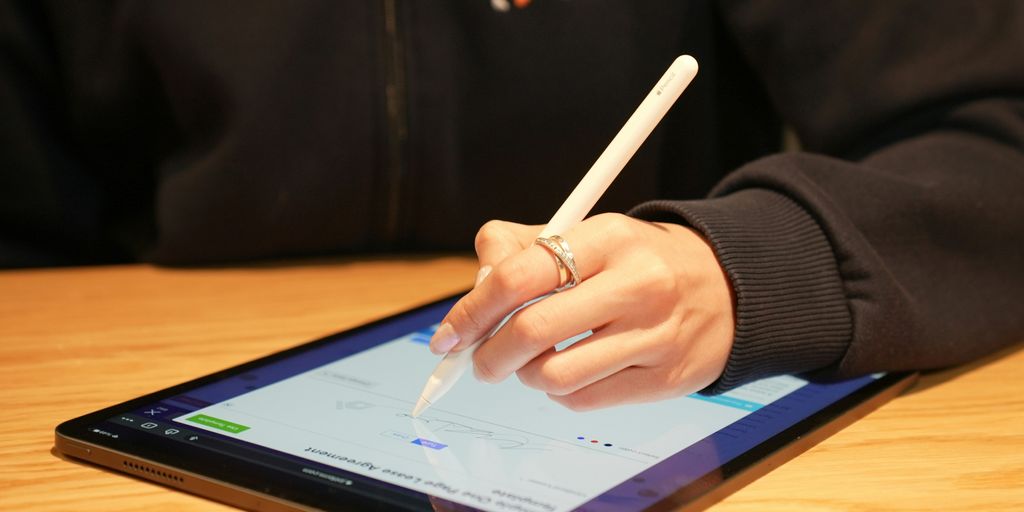So, you’re thinking about applying for a google careers internship. It’s a big goal, and honestly, looking at the whole process can feel like a lot. I’ve been there. You see the polished website and hear about how competitive it is, and it’s easy to get discouraged. But really, it’s just a series of steps. This guide is meant to break those steps down into something manageable. We’re going to go over how to make your application stand out and what to expect along the way, without any of the fancy jargon that just makes things confusing.
Key Takeaways
- Your resume needs to be more than just a list of skills; focus on showing the actual impact of your projects.
- The official application timeline is strict, so knowing the key dates for the google careers internship is a must.
- Practice for technical interviews by talking through problems out loud, not just solving them in your head.
- Don’t forget the ‘Googliness’ part of the interviews; they want to see how you work with others and solve problems as a person.
- Getting past the main interviews leads to host matching, where you have to show specific teams why you’re a good fit for their projects.
Understanding The 2025 Google Internship Landscape
What Makes A Google Internship A Career Game-Changer
Okay, so why is everyone so obsessed with getting a Google internship? It’s not just the name, though that definitely helps. A Google internship is a launchpad. You’re talking about getting real-world experience on projects that actually matter, working alongside some seriously smart people. Plus, the perks are pretty sweet. Think free food, cool office spaces, and a paycheck that doesn’t make you cry. But honestly, the biggest thing is the doors it opens. A Google internship on your resume? That’s like a golden ticket in the tech world. It shows you can handle pressure, learn fast, and contribute to a team. And those are skills that every company wants.
Key Internship Roles And Departments To Target
Google’s not just about software engineering, even though that’s a big part. They have internships in all sorts of areas. Here’s a quick rundown of some popular spots:
- Software Engineering: This is the classic Google internship. You’ll be coding, testing, and building stuff. If you love problem-solving and writing clean code, this is for you.
- Hardware Engineering: If you’re more into the physical side of things, hardware engineering is where it’s at. Think designing and testing the next generation of Google devices.
- Data Science: Got a knack for numbers and analysis? Data science interns work with huge datasets to find insights and improve Google’s products. AI strategies are becoming more important here.
- Product Management: If you’re a natural leader with a good sense of what users want, product management could be your thing. You’ll be helping to define the future of Google’s products.
- Marketing: Love telling stories and connecting with people? Marketing interns help Google reach new users and build its brand.
The Official Application Timeline You Cannot Miss
Missing the deadline is a total deal-breaker, so pay attention! Google usually opens its internship applications in the fall (around September/October) for the following summer. The absolute latest you want to apply is January, but earlier is always better. They review applications on a rolling basis, so the sooner you get yours in, the better your chances. Keep an eye on the Google Careers page for the official dates. Don’t rely on rumors or old information. Set a reminder on your phone, put it on your calendar, whatever it takes. Just don’t miss it!
Crafting An Application That Gets Noticed

It’s time to make your application shine! Google gets tons of applications, so you need to stand out. It’s not just about listing your skills; it’s about showing Google why you’re the perfect fit. Let’s get into how to make your application pop.
Tailoring Your Resume For Google’s Recruiters
Your resume is your first impression. Make it count by tailoring it specifically for Google. Don’t just send a generic resume; customize it to match the specific internship you’re applying for. Here’s how:
- Use Keywords: Look at the job description and sprinkle those keywords throughout your resume. Google’s recruiters use software to scan resumes, so using the right words is important.
- Quantify Your Achievements: Instead of saying "Improved efficiency," say "Improved efficiency by 15% using [specific tool/method]." Numbers speak louder than words.
- Keep it Concise: Recruiters don’t have time to read a novel. Aim for one page, maybe two if you have a lot of relevant experience. Focus on the most important stuff.
Showcasing Impactful Projects And Practical Experience
Google wants to see what you can do, not just what you’ve learned. Highlight projects that demonstrate your skills and problem-solving abilities. Think about it, what’s more impressive: saying you know Python, or showing a project where you used Python to build something cool?
- Focus on Results: Describe the problem you solved, the steps you took, and the impact of your work. What did you achieve? How did it help?
- Use Visuals (If Possible): If you have a portfolio website, include screenshots or demos of your projects. A picture is worth a thousand words.
- Be Ready to Explain: Be prepared to discuss your projects in detail during the interview. Know the ins and outs of your code, your design choices, and the challenges you faced.
Writing A Compelling Statement Of Purpose
Your statement of purpose (or cover letter) is your chance to tell your story. It’s where you can show your personality and explain why you’re passionate about Google. Don’t just repeat your resume; use this space to connect with the reader on a personal level. Think of it as your chance to show off your aspiring software engineer skills.
- Show, Don’t Tell: Instead of saying "I’m a hard worker," describe a time when you went above and beyond to complete a project. Give specific examples.
- Connect to Google’s Mission: Explain how your values align with Google’s mission and how you can contribute to their goals. Show that you understand what Google is all about.
- Proofread, Proofread, Proofread: Typos and grammatical errors are a huge turnoff. Have someone else read your statement before you submit it. A fresh pair of eyes can catch mistakes you might miss.
Navigating The Google Careers Portal Like A Pro
Okay, so you’re ready to tackle the Google Careers portal? It can seem a little overwhelming at first, but trust me, with a few pointers, you’ll be browsing internship opportunities like a pro. It’s all about setting yourself up for success from the get-go. Let’s break it down.
Setting Up Your Candidate Profile For Success
Your candidate profile is basically your first impression, so make it count. Think of it as your digital handshake with Google. Make sure all the basics are covered: your name, contact information, education history, and work experience. But don’t just stop there.
- Add a professional-looking photo. It helps recruiters put a face to your name.
- Write a brief summary about yourself. Highlight your skills, interests, and career goals. This is your chance to show some personality.
- Double-check everything for typos and grammatical errors. Seriously, even small mistakes can make a big difference. You can use candidate assessments to help you with this.
Strategically Selecting Your Preferred Roles And Locations
Google has internships all over the place, and in a ton of different fields. Don’t just apply for everything that looks remotely interesting. Be strategic. Think about what you really want to do and where you really want to be.
- Research different roles and departments. What does a software engineering intern do versus a product management intern? What are the day-to-day tasks like?
- Consider your location preferences. Are you willing to move? Do you prefer a big city or a smaller town? Google has offices all over the world, so you have options.
- Don’t be afraid to be specific. The more focused you are, the better your chances of finding an internship that’s a good fit. You can find the right role for you by using the search filters.
Effectively Tracking Your Application Status
Once you’ve applied, the waiting game begins. But don’t just sit around twiddling your thumbs. Keep an eye on your application status in the portal. This will give you some peace of mind and help you stay organized.
- Check the portal regularly for updates. Google will usually send email notifications, but it’s always a good idea to check manually.
- Make a note of when you applied for each internship. This will help you keep track of how long you’ve been waiting.
- Don’t be afraid to follow up (politely) if you haven’t heard back in a while. A simple email to the recruiter can show your continued interest. Remember to take the first step and apply!
Acing The Technical And Behavioral Interviews
Mastering Core Data Structures And Algorithms
Okay, so you’ve made it past the resume screen – awesome! Now comes the part that makes most people sweat: the interviews. For technical roles, Google really digs into your knowledge of data structures and algorithms. I’m talking arrays, linked lists, trees, graphs, sorting, searching – the whole shebang. You need to be able to not just know them, but also apply them to solve problems efficiently.
Think about it this way: you’re not just memorizing code; you’re learning how to think like a computer. Practice implementing these structures from scratch. Understand the time and space complexity of different operations. LeetCode and HackerRank are your friends here. Seriously, grind those problems. And don’t just solve them – understand why your solution works and how you could improve it. Also, brush up on your Big O notation; they’ll definitely ask about that.
Communicating Your Problem-Solving Process Clearly
It’s not enough to just get the right answer. Google wants to see how you get there. They want to understand your thought process. This means talking through your code as you write it. Explain your reasoning, even if you’re not 100% sure you’re on the right track. It’s better to show them how you’re thinking than to sit in silence and then suddenly produce a perfect solution. If you get stuck, don’t panic. Ask clarifying questions. Explain what you’re trying to do and where you’re running into trouble. The interviewer is there to help guide you, not just to judge you. Practice explaining your code to a friend or even a rubber duck. The more comfortable you are talking about your code, the better you’ll do in the interview. Remember to test your code and walk through test cases to catch errors.
Preparing For ‘Googliness’ And Leadership Questions
"Googliness" is a real thing. It’s about being collaborative, innovative, and adaptable. It’s about being a team player and having a passion for technology. The behavioral interview is where they try to assess this. They’ll ask you questions like "Tell me about a time you failed" or "Tell me about a time you had to work with a difficult teammate." The STAR method (Situation, Task, Action, Result) is your best friend here. Structure your answers clearly and concisely. Focus on what you did and what you learned. Don’t just say you’re a great leader; show them with specific examples. Think about times you took initiative, solved problems, or helped others. And be honest! They’re not looking for perfection; they’re looking for authenticity. Think about Google’s culture and aligning your application with their values.
Decoding The Host Matching Process
So, you crushed the interviews! Congrats! But hold on, there’s one more hurdle before you officially snag that Google internship: the host matching process. It can feel a little mysterious, but understanding what’s going on behind the scenes can ease your anxiety.
What To Expect After Passing The Technical Screens
Okay, you’ve passed the technical and behavioral interviews. Now what? Your profile goes into a pool where hiring managers at Google can see it. These managers are looking for interns to join their teams for specific projects. Think of it like a dating app, but for internships. They’ll review your resume, your interview feedback, and any other relevant info to see if you’d be a good fit for their team. It’s not a guarantee that you’ll get matched, but if you did well in your interviews, your chances are pretty good. Keep in mind that international students might need to adjust their schedules for potential calls due to time zone differences.
Aligning Your Skills With Team Projects And Needs
This is where you need to think strategically. It’s not just about any team picking you; it’s about finding a team where your skills and interests align with their projects. Do some research on different Google teams and the kind of work they do. If you have a strong interest in machine learning, for example, you’ll want to highlight any projects or experience you have in that area. This will make you a more attractive candidate to teams working on ML projects. Be open to different possibilities, but also be clear about what you’re passionate about. The goal is to find a team where you can make a real contribution and learn something new.
Making A Lasting Impression On Potential Managers
If a manager is interested in you, they’ll likely reach out for a chat. This isn’t usually a formal interview, but it’s your chance to make a good impression. Be enthusiastic about the team’s work, ask thoughtful questions, and highlight how your skills and experience can benefit them. Share your relevant experience, and show that you’re eager to learn and contribute. Managers want interns who are excited about the opportunity and ready to dive in. Remember to follow the STAR method when answering questions, and show your "Googleyness" by highlighting traits like collaboration and innovation.
From Intern To Full-Timer: Maximizing Your Opportunity

So, you’ve landed a Google internship – congrats! But the real game starts now. It’s not just about the free food and cool office; it’s about setting yourself up for a full-time gig. Let’s talk about how to make the most of it.
Making An Impact In Your First Thirty Days
Those first few weeks? They’re huge. Show initiative right away. Don’t just sit around waiting for tasks. Ask questions, volunteer for stuff, and get to know your team. Understand what they’re working on and how you can contribute. It’s also a good idea to set up some one-on-ones with your manager and team members to understand expectations and goals. Make sure you understand the team’s projects and how you can contribute.
Building Your Professional Network With Peers And Mentors
Google is full of smart people. Connect with them! Your fellow interns are going to be some of the brightest minds out there, and your mentors can offer invaluable guidance.
Here’s a few ways to build your network:
- Attend intern events and workshops.
- Schedule coffee chats with people in different departments.
- Join employee resource groups that align with your interests.
Don’t be afraid to reach out – most Googlers are happy to share their experiences and offer advice.
Strategies For Securing A Return Offer
Okay, let’s get down to brass tacks: getting that return offer. It’s not just about doing your assigned tasks; it’s about exceeding expectations. Here’s the deal:
- Consistently deliver high-quality work: This seems obvious, but it’s worth repeating. Pay attention to detail, meet deadlines, and go the extra mile.
- Seek feedback and act on it: Don’t be afraid to ask for feedback, and more importantly, show that you’re taking it to heart. This demonstrates a growth mindset, which Google values.
- Communicate effectively: Keep your manager informed of your progress, challenges, and any roadblocks you encounter. Don’t wait until the last minute to ask for help.
Think of your internship as a extended interview. Show them why they can’t afford to let you go. Good luck!
Wrapping It All Up
So, that’s the rundown on applying for a Google internship in 2025. It can feel like a huge mountain to climb, I get it. There are a ton of people applying, and the process has a lot of steps. But it really just comes down to a few things. You have to work on your skills, for sure. And you need to be able to talk about what you’ve done in a clear way. Don’t forget to just be yourself through it all. The whole thing is a marathon, not a sprint, so don’t get discouraged if it takes time. Hopefully, this guide gave you a good starting point. Now it’s your turn to get to work. Good luck!
Frequently Asked Questions
When is the best time to apply for a 2025 Google internship?
You should aim to apply early! For summer internships in 2025, the applications usually open in the fall of 2024. It’s a good idea to check the Google Careers website often starting around September, as different roles can have different timelines. Applying as soon as you see a good fit is your best bet.
What’s more important on my resume: good grades or my personal projects?
That’s a great question. While good grades are important, Google really wants to see what you can do in the real world. A personal project, like an app you built or a website you designed, shows your passion and skills way more than just a letter grade. It proves you can actually build things. So, focus on creating cool projects to show off.
Can I still apply for an internship if I’m an international student?
Yes, absolutely! Google is a huge company with offices all over the world, and they hire interns from many different countries. When you apply on the careers portal, you can often select various locations you’d be willing to work in. Just make sure to read the job description carefully to see if there are any specific location requirements.
How much coding practice do I need for the technical interviews?
There isn’t a magic number of hours, but consistent practice is the secret. Start a few months before you apply. Work on coding problems that focus on data structures and algorithms. The big thing isn’t just getting the right answer, but being able to explain how you got there. Practice talking through your solutions out loud.
What is ‘host matching’ and how does it work?
Host matching is the step after you pass your main interviews. Your profile is sent to different teams inside Google. A manager, who is called a ‘host,’ might see your profile and think you’re a good fit for their team’s project. They’ll then set up a chat with you. It’s less of a test and more of a conversation to see if you both like the match.
What are my chances of getting a full-time job offer after my internship?
Getting a full-time job after your internship is a real possibility and a big goal for many interns. Google often hires its past interns. If you do great work, show that you’re excited to learn, and work well with your team, you put yourself in a great position. Focus on making a real impact, and you’ll have a strong chance of getting a return offer.














